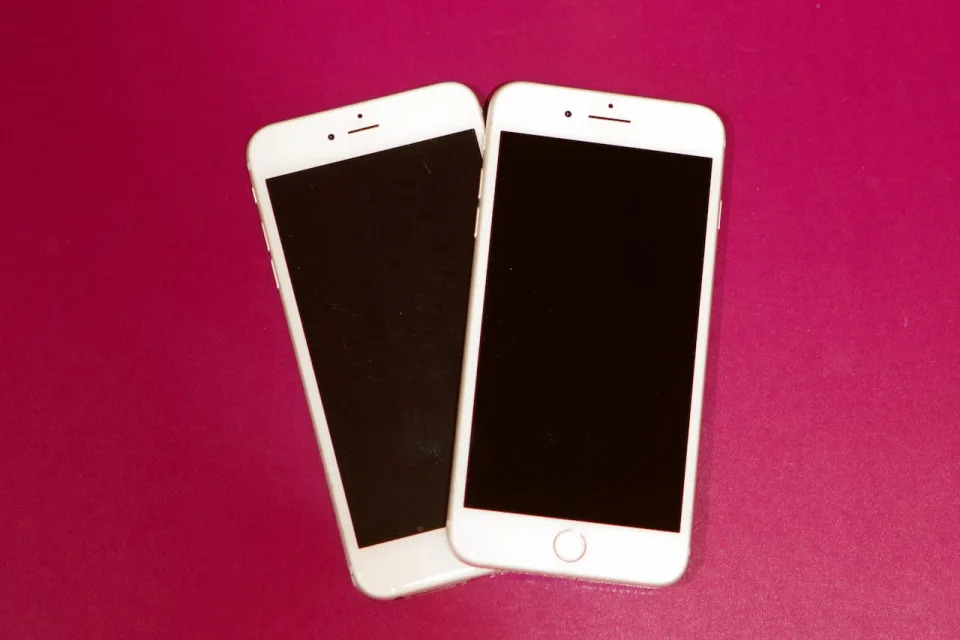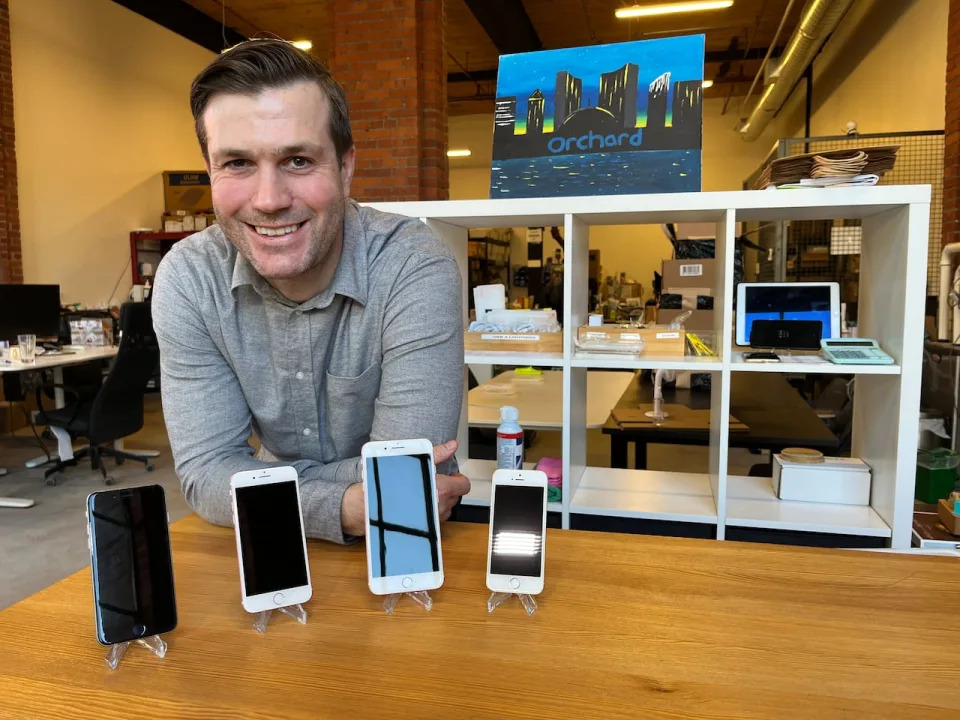Apple to pay up to $14.4M in iPhone throttling settlement approved by B.C. judge
CBC
Mon, March 4, 2024

An iPhone 6 and 7 are pictured on Jan. 29. A B.C. Supreme Court judge has approved a proposed $14.4 million settlement from Apple to eligible members of a class-action lawsuit that accused the company of deliberately providing software updates that slowed its iPhone 6 and 7 models. (Showwei Chu/CBC - image credit)
A B.C. Supreme Court judge has approved a proposed maximum $14.4 million settlement from Apple to eligible members of a class-action lawsuit that accused the company of deliberately providing software updates that slowed its iPhone 6 and 7 models.
Apple denies the allegations. The company had earlier agreed to pay between $11.1 million and $14.4 million as part of the settlement. It says the settlement is not an admission of wrongdoing.
Depending on how many people apply for the settlement, claimants will receive between $17.50 and $150. They must provide a serial number for the impacted phone.
The settlement applies to residents in all provinces except for Quebec. Similar lawsuits were filed in Ontario, Saskatchewan and Alberta.
The judge ultimately decided that the proposed settlement was "fair, reasonable and in the best decision of the class," said class counsel Michael Peerless in an interview with CBC News.
"Apple did the right thing and came forward and, in a sense, stood behind their product without making a legal admission that they did anything wrong. And that's very normal" for a class action, Peerless said.
Apple customers who bought an iPhone 6, 6 Plus, 6s, 6s Plus, SE, 7 or 7 Plus with iOS 10.2.1 or later (for iPhone 6, 6 Plus, 6s, 6s Plus, or SE) and/or iOS 11.2 or later (for iPhone 7 or 7 Plus) before Dec. 21, 2017 may be eligible for the settlement, according to a website representing the class action.
A similar case in the U.S. saw the company settle with iPhone users whose devices were throttled by software updates, diminishing the phones' performance and battery life.
The California case settlement range was between $310 million US and $500 million US.
CBC News has reached out to Apple for a statement.
Transparency concerns around software updates
Benjamin Tan, an assistant professor of electrical and software engineering at the University of Calgary, said that many companies have moved toward a new software update at least every month to fix bugs and add new features.
But those updates can include software which further degrades the phone, leading consumers to purchase a new model sooner than they would have otherwise.
"There's a lot in the digital world that we don't necessarily have full control over anymore, partly because the systems are really complicated," said Tan.
"In this particular case, though, what was I think cause for concern was that companies don't always make it very clear exactly what they're updating," he added.
"And when they don't really advertise in advance that these might be some of the side effects that happen to address battery issues or security flaws or something, that's usually [when] people say, 'Hang on, what's going on here? This wasn't really anticipated.'"
'Tucked away in the sock drawer'
Alex Sebastian, the co-founder and COO of Orchard, a Canadian company that resells used iPhones, said his customer service team noticed that there was an uptick in reported slowdowns among iPhone 6, 6S and 7 models after the iPhone 8 was introduced alongside iOS 11 in 2017.
"Customers were starting to call in to talk about their phone slowing down and asked what can be done about it, and the short answer is, there wasn't a lot that we could do to help them out there," Sebastian told CBC News.
"I think it's pretty conservative to estimate that 10 million Canadians bought one of those generations of phones, so that's 10 million potential claimants you have out there," he said.

Alex Sebastian, the co-founder and COO of Orchard, a Canadian company that buys and sells used devices.
'Customers were starting to call in to talk about their phone slowing down and asked what can be done about it,' said Alex Sebastian, the co-founder and COO of Orchard, a Canadian company that buys and sells used devices. (James Dunne/CBC)
At the time, iPhone users were upgrading their phones every 24 to 28 months on average, he said. Today, the turnover rate is more like 30 to 33 months.
Eligible claimants will be able to apply for a max of $150 from the settlement pool, which is more than the cost of replacing a battery on one of the impacted phone models today — and on par with what it would have cost to do so several years ago, according to Sebastian.
"I think there's a lot of outcomes where claimants are not receiving the full $150, because there is an upper limit of $14[.4] million dollars on the entire settlement," he said.
"I think that a lot of people probably have disposed of their phones by now. But there's certainly going to be a meaningful proportion who have tucked it away in the sock drawer, that can go find that phone and pull the serial number off and make a claim here."
No comments:
Post a Comment